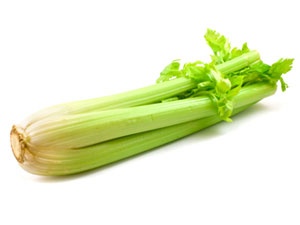
Research shows that the following foods are the most pesticide-retentive. So rather than expose yourself to them, here's why you should strictly stick to the organic options.
Pesticide contamination is a topic that has often come under the glare of the media and although many organisations are trying to put a stop to the use of pesticides, effective alternatives are yet to be found.
Agricultural boards like the USDA (US Department of Agriculture), FDA and international scientists are analysing the extent of exposure in humans and animals and have come forward with a list of the most pesticide-retentive foods known as 'The Dirty Dozen'. All food items on this list are infamously rich sources of as many as five to 13 different pesticides, which are retained and absorbed by the produce and can't be washed or peeled away.
According to the Pesticide Data Program (Blythe 2010), when analyses of dozens of samples of chemically-grown produce were carried out, 35 pesticide residues were found in almost each of the 15 varieties of produce, such as apples, strawberries, sweet corn and grapes.
These pesticides, which are designed to kill pests like fungi or insects, have been linked to various hormonal imbalances, neural toxicity, cancers and irritation of the eyes, lungs and skin in humans. Here's a guide that shows you the 12 most pesticide-retentive foods that must be bought organic if you don't want your body to turn into a pesticide processing power plant.
1. Celery
Absence of a protective skin causes celery to be directly exposed to the harmful effects of pesticides, which get quickly absorbed into its system, and then into ours when we ingest it.
Added to celery, there's also spinach, which is loaded with pesticides. The former retains a staggering 64 different varieties of pesticides, while the latter as many as 48.
is one of the most trusted sources of information about good health and wellness. To those who want to manage their health themselves, LifeMojo provides necessary information, tips, tracking tools and support to help them stay informed and motivated.
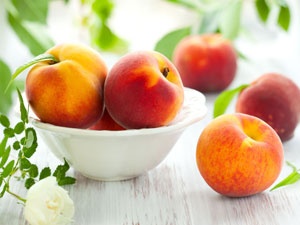
Delicately skinned, peaches contain almost 62 different fungicides and pesticides, which also include captan and iprodione, a cancer-linked fungicide and methyl parathion, a neurotoxin pesticide.

Seasonal fruits are often imported and even when home-grown, they are treated chemically. Strawberries contain almost 59 pesticides, of which captan and iprodione are probable carcinogens.
Additionally, they are contaminated with vinclozolin, that suppresses the normal role of androgen (a male hormone) and also endosulfan, a DDT relative that imitates estrogens and affects the hormone levels of the body.

Always toppers in contamination, apples do little to keep the doctor away, especially when they are grown commercially. Since peeling ruins the nutritional content of fruits anyway, apples must be bought organic, owing to the high pesticide usage in their cultivation, resulting in almost 42 different pesticide residues.

With a disturbing 13 pesticides on a single sample, blueberries are a desirable fruit that pose a huge threat of chemical contamination in humans, due to their high pesticide residue content. The fruit is treated with as many as 52 pesticides and fungicides, so it can be a good idea to avoid it altogether, or opt for organic versions of this berry.
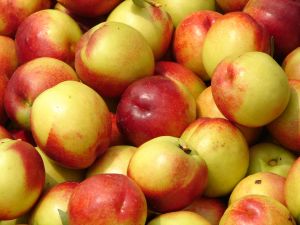
Almost 95.1 per cent of nectarines contain two pesticides and 80.6 per cent contain pesticide residues. Rating as another top tree-fruit loaded with contamination, nectarines join the brigade of apples and peaches with 33 different varieties of pesticides to contribute to their farming and following into the food chain unchecked.
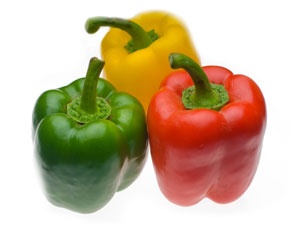
A shocking 95 per cent of bell pepper produce contains as many as 49 different pesticides. Since they are prone to infection, conventionally-grown bell peppers are heavily sprayed with insecticides that easily permeate through their thin skins and get contained. Most of these eligible insecticides are neurotoxins that definitely do more harm than the good that vitamins A and C present in bell peppers do us.
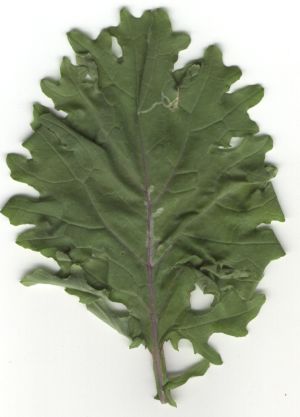
Known to be one of the low-maintenance vegetables, kale rarely needs pesticides. Still, research shows that samples of kale contain high pesticide residue. Essentially, organic is what you must shift to.
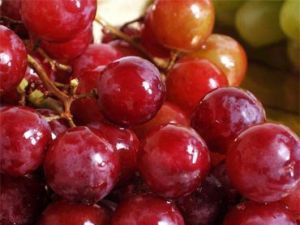
Vineyards are treated with different pesticides at different stages of their growth period. The thin grape skin does not offer much resistance to the pesticide entry, hence contributing to the pesticide and fungicide content.
And please do not ignore the fact that wine is a grape product. Move to organic versions please.
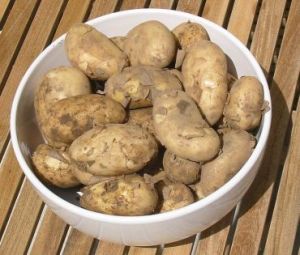
A favourite with most people, potatoes come loaded with chlorothalonil, primarily dangerous to kids. The contamination percentage is also responsible for asthma and asthma-related problems among children. Laced with as many as 37 insecticides, green and organic potatoes should be the only choice.

No chicken bears eggs these days in commercial poultries without hormonal and antibiotic meds. These are easily passed onto the extensively consumed eggs. Going organic on this one would mean lesser foreign and potentially hazardous hormones in our bodies.

Only after treating cows with antibiotics and hormones do they become unnaturally high-yielding. Early puberty and many hormonal abnormalities result from supplements like the bovine growth hormone (rBGH), which are fed to cows for high milk production. Go organic with your milk, without a second thought.
Abandoning these food items is a short-term solution and all you need to do is move to their organic substitutes. You can carry the Dirty Dozen list along the next time you visit the vegetable shop.
Also, you can pep up on your consumption of the 'Clean Fifteen' that comprise onions, sweet corn, sweet peas, asparagus, cabbage, eggplant, sweet potatoes, avocados, pineapples, mangoes, kiwi, watermelon, grapefruit, honey dew and cantaloupe.